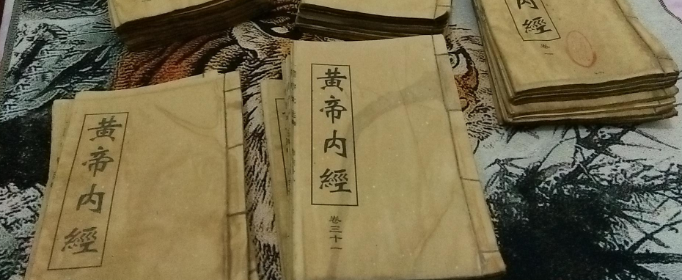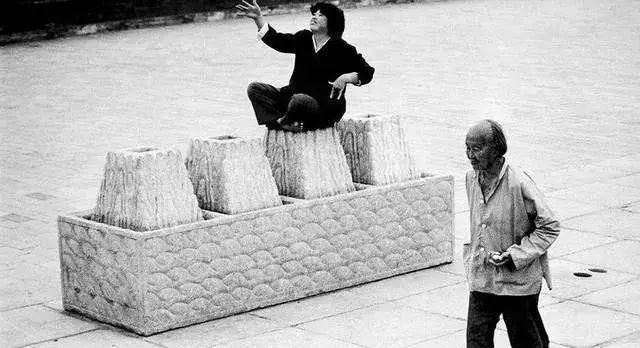
Qi Gong, like traditional Chinese medicine (TCM) herbs and acupuncture, is an important component of TCM. The classic text of TCM, the Huangdi Neijing (Yellow Emperor’s Inner Canon), written over two thousand years ago, contains extensive content on Qi Gong. This content informs us that Qi Gong is a self-cultivation method that utilizes mental tranquility to prevent and treat diseases. Modern scientific research has found that Qi Gong practice significantly relaxes psychological tension, regulates physiological functions of various systems, and prevents and treats psychosomatic diseases. Despite its many benefits, improper practice can lead to physical discomfort and, in severe cases, can affect normal work, study, and life. We refer to the various degrees of psychosomatic disorders caused by improper Qi Gong practice as “Zou Huo Ru Mo” (走火入魔) or “Qi Gong Imbalance”. Mental health experts in China classify this condition as a mental disorder resulting from improper Qi Gong practice.



Manifestations of Qi Gong Imbalance:
Qi Gong imbalance is a type of mental disorder affecting perception (知), emotion (情), intention (意), and behavior (行). Specific manifestations vary widely, including symptoms such as head heaviness and tightness, chest tightness and shortness of breath, Qi stagnation throughout the body, and illusions or hallucinations (e.g., “opening the heavenly eye” or “ear function”); emotional states may fluctuate abnormally (e.g., believing one has developed extraordinary abilities and attempting to treat others), feelings of extreme low mood, anxiety, tension, fear, and difficulty concentrating; various delusions, such as suspecting others have stolen one’s “Qi”, or that one has been afflicted with “sick Qi” by others, or that one is controlled by the “Qi” of a Qi Gong master; increased or decreased actions and speech, impulsive behaviors, such as destroying property or harming oneself based on “messages (hallucinations)” received.

Causes of Qi Gong Imbalance:
The process of learning and practicing Qi Gong involves practitioners studying relevant theories and methods, and under this guidance, engaging in specific Qi Gong practices, which gradually reinforce these behaviors as conditioned reflexes in the brain. Therefore, the correctness of one’s understanding of Qi Gong and the appropriateness of the practice methods can determine whether one experiences imbalance during practice. Additionally, the practitioner’s psychological quality and physical constitution are also related to Qi Gong imbalance.
For example, failing to correctly understand Qi Gong and hoping to gain “extraordinary abilities” through practice, or obsessively pursuing a certain “Qi sensation”, is the primary reason for imbalance in most individuals. This pursuit is directly related to the sensationalized promotion of Qi Gong by some irresponsible media and self-proclaimed masters. Over the years, the prevalence of superstitious and anti-scientific propaganda has created a toxic cultural atmosphere that misleads Qi Gong enthusiasts into the depths of mental disorders. Especially when self-proclaimed masters use typical hypnotic suggestion techniques during group practices, it is easier to alter the perceptions of individuals with hysterical tendencies, leading to mental disorders.
In some cases, the low level of the Qi Gong master’s skills and the erroneous principles of the methods they create can also lead to imbalance. For instance, some method creators promote the idea that “life is movement, and all diseases disappear with movement; the more you move, the better” or “the power of true Qi is very strong, and once activated, it cannot be controlled”, resulting in many practitioners excessively pursuing so-called “spontaneous movement”, leading to imbalance.
Another cause of imbalance is that practitioners do not master the key points and precautions of practice, leading to improper practice. For example, practicing without mental relaxation, muscle tension, overly pursuing a specific breathing method, focusing on inappropriate areas, or being unprepared for sudden stimuli during practice can all lead to imbalance.
Furthermore, the practitioner’s psychological quality and physical constitution play a significant role. For instance, individuals who are easily suggestible or have hysterical tendencies may also react to erroneous theories and guidance, resulting in imbalance. Those who have long-term depressive moods or psychological disorders, especially those with a history of mental illness or tendencies, are particularly susceptible to mental disorders when entering a meditative state during Qi Gong practice.



How to Prevent Qi Gong Imbalance:
To prevent Qi Gong imbalance, it is essential to take corresponding measures targeting the relevant factors that lead to imbalance.
First, one should correctly understand that Qi Gong is merely a self-cultivation method that influences one’s physiological functions through self-psychological adjustment. Mastering the correct practice methods can help in health maintenance and the treatment of certain psychosomatic diseases, but Qi Gong cannot cure all diseases, nor can it develop “extraordinary abilities”. Do not believe the temptations of self-proclaimed masters or irresponsible media, and avoid unrealistic pursuits regarding Qi Gong.
Second, one should consult qualified Qi Gong professionals and avoid casually seeking instruction from self-proclaimed masters. It is important to note that self-proclaimed masters are prevalent.
Select a practice that suits your physical constitution and condition, and practice strictly according to the key points and precautions under the guidance of a Qi Gong professional. Do not randomly speculate about whether you are experiencing imbalance based on effects during practice, as this negative self-suggestion can affect your meditative state and even induce imbalance.
Individuals with a history of mental illness should avoid practicing Qi Gong; those with psychological disorders should ideally consult a psychologist for assessment before learning Qi Gong to determine their suitability for practice; individuals who are easily suggestible or have hysterical tendencies must practice under the correct guidance of professionals. By adhering to these guidelines, Qi Gong imbalance can be completely avoided.


How to Treat Qi Gong Imbalance:
Treatment methods for Qi Gong imbalance include stopping practice and ideally seeking professional help to correctly understand the causes of the imbalance and the current situation. Avoid seeking correction from self-proclaimed masters to prevent delaying treatment. Based on correct understanding, one can combine calming and sedative Chinese herbal medicine and acupuncture for treatment. If the results are not satisfactory, one may consult a psychiatrist for appropriate antipsychotic medication treatment based on the condition, which can yield favorable results. In cases of severe schizophrenia, hospitalization for systematic antipsychotic treatment is necessary.

Source: Mint Tea Society


Follow the QR code
Learn to protect yourself
Stay away from cult organizations



